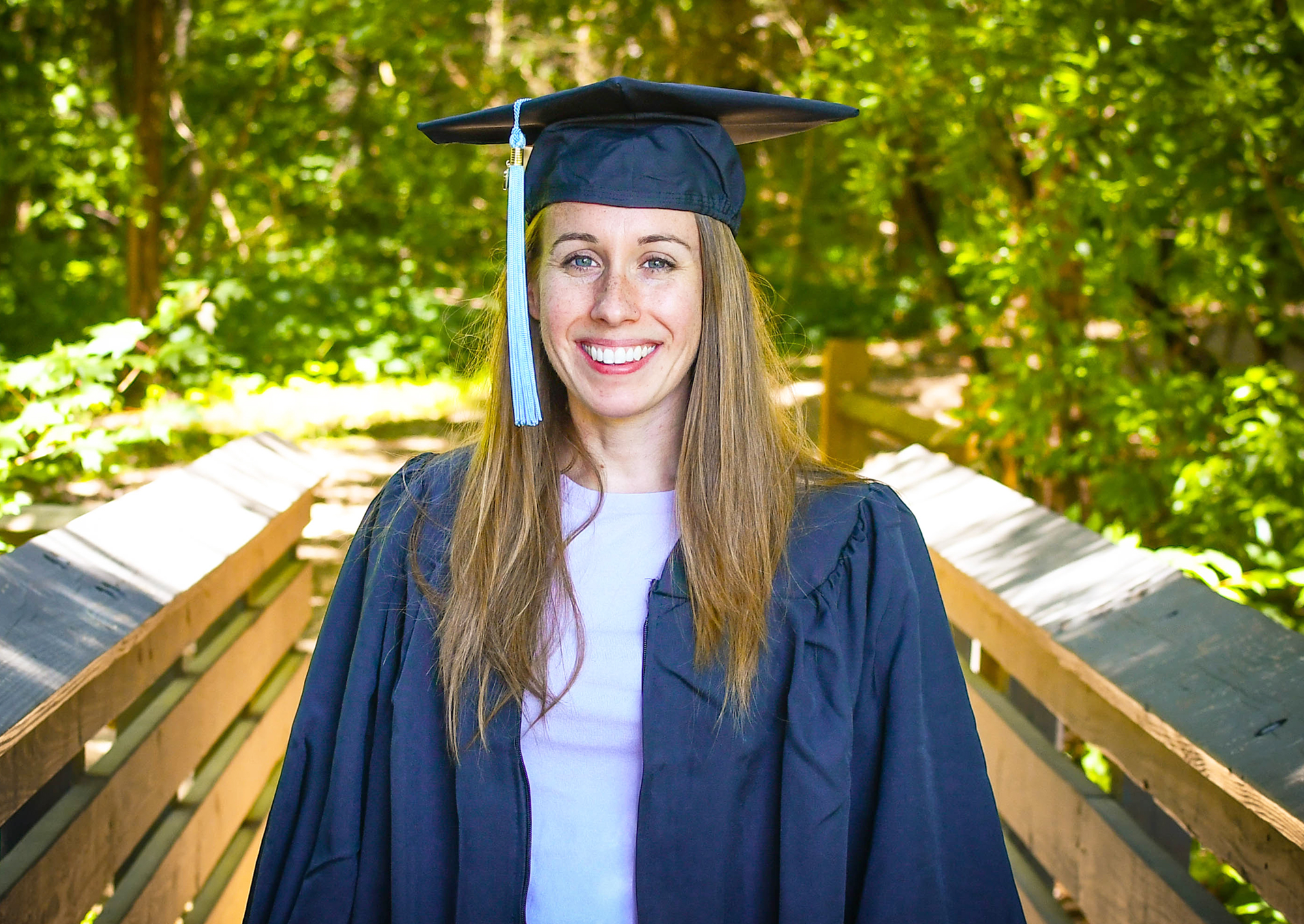Beth Swiatek never expected a career in education while sitting in a science lab as a student at UNC Charlotte, but after graduating in 2012 with a Bachelor of Science in Kinesiology, the North Carolina native soon discovered a passion for taking a holistic look at human well-being.
“I had already learned everything from the neck down, so I decided now I need to learn everything from the neck up,” said Swiatek, a master’s student in school counseling at the UNC School of Education.
She went on to graduate from the University of Tennessee, Knoxville with a Master of Science in Applied Educational Psychology and focused her research on the factors associated with degree of resiliency displayed in K-12 children.
“My mom and my aunt both worked in the school system, so I grew up staying after school helping my teachers and even coming in on teacher workdays,” she said. “I grew to love the school environment and what it stood for. It became a second home for me. I always dreamt of making that home environment for other people who might need it as well.”
‘Being comfortable in the uncomfortable…’
That passion for schools led Swiatek to the Master of Education in School Counseling program at Carolina, where coursework and internship experiences have fostered and enhanced her work to help students. During an internship at James E. Shepard Magnet Middle School in Durham, Swiatek worked alongside students and staff to provide resources for some of the school’s most pressing issues, including advocacy for LGBTQ+ spaces within the school.
“I started by doing research on the school climate, and even though there were few standards in place, the data showed me there was a high need for LGBTQ+ resources and safe places,” she said. “I did a series of professional development training to show staff how they can best support students who identify within the LGBTQ+ community.”
Partnering with students, Swiatek also laid the groundwork to create a Gender and Sexualities Alliance (GSA) on campus. GSAs are student-run organizations that unite LGBTQ+ and allied youth to build community and organize around issues impacting them in their schools and communities.
For her work at Shepard Middle, Swiatek was named the recipient of this year’s Galassi-Brown Social Justice and Advocacy Award. The award, named for John P. Galassi and Duane Brown who both retired as full professors from the UNC School of Education and who contributed over 80 years of combined service is presented annually to the school counseling student who goes beyond expectations to promote social and educational justice. This student demonstrates exceptional advocacy for the students they serve, the schools where they work, and the school counseling profession.
In March, COVID-19 caused her school to move online, but Swiatek didn’t waver in her commitment to student success.
“I created a Google classroom right away to target students and provide them with the support they needed from the counseling department,” she said. “I created a digital calming room, provided explanatory resources on how to best protect ourselves from the virus, and I also reached out personally to students I knew didn’t have access to the internet.”
She attributes her quick thinking to a lesson she learned during her time within the School Counseling program.
“I constantly hold onto the idea of being comfortable in the uncomfortable and embracing it, because that is where you learn the most about yourself and you’re able to push boundaries to do what is right.”
‘A foundation for what more I can do’
Swiatek is an active member of the North Carolina Counseling Association and the American School Counseling Association. Specifically, she is a part of the NCCA’s Association for Multicultural Counseling and Development (AMCD) and the Society for Sexual, Affectional, Intersex, and Gender Expansive Identities (SAIGE).
When asked why these two professional groups were important, Swiatek said, “These are both topics that we not only see in the news today, but these are also groups that have been underrepresented and need a lot of advocacy not only in our schools but in the mental health profession.”
After she graduates this August, Swiatek is excited to begin her career as a school counselor, and to have the opportunities to continue her work for social justice. She is currently working to get more involved in policies surrounding education, specifically, working alongside North Carolina legislators to reform education, making it more equitable for all students.
“As a lifelong learner, I will never stop moving forward,” she said. “I want to utilize what I’ve done as a foundation for what more I can do. After all, we have to constantly ask ourselves ‘How can I be a better advocate?'”
